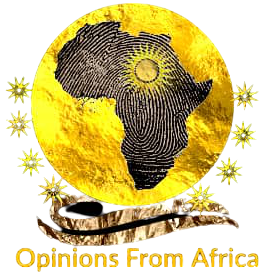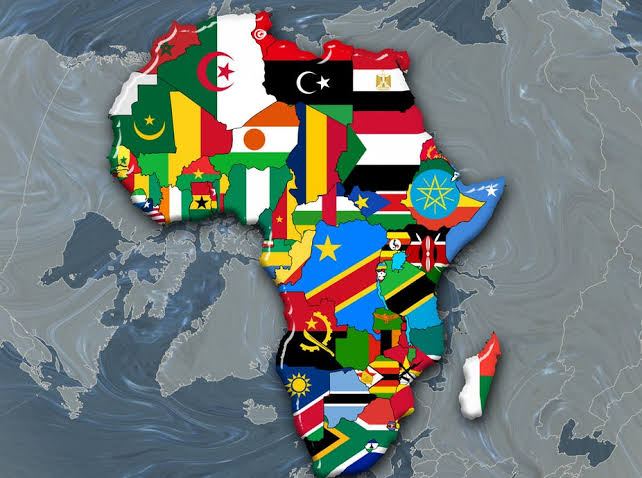Ever since Placid Temples produced his pioneering Bantu Philosophy, there has been an endless and partly fruitless debate about whether or not there exists such an entity as could be legitimately called African or Bantu, or Yoruba, or Zulu philosophy. Questions and learned pages on the existence and nature of an African philosophy are bread and butter of seminars and conferences of philosophy in Africa. Emotional pleas are made for such a philosophy on the grounds that for the sake of a cultural decolonization, Africa must have her own philosophy. Elaborate anthropological and ethnological studies are produced to show that Africa has always had a popular, mythical, unconscious and lived philosophy, and that such a philosophy needs only to be peeled off from the traditions, proverbs and linguistic structures of the past.
One of the most outspoken critics of African Philosophy is Paulin Hountondji who wants at all costs to destroy theoretically this “pervading myth” of an already existing popular African Philosophy. His main arguments could be summarized as follows:
1. By proposing an African philosophy, we unwittingly play into the hands of colonialists and racialist who insist that the African is different from the European. Thus any reference to African philosophy forces us to define Africa with respect to Europe.
2. Philosophy in the strict sense of the world must be a scientific, theoretical and individual discipline, just like algebra, physics or linguistics, and can therefore not be replaced by popular beliefs, traditional practices and a collective and unconscious behavior.
3. Wherever philosophy arose, it was in opposition to the preceding traditions of mythical, dogmatic and conservative world views. Philosophy does not grow out of myth and a fortiori cannot be identifies with the myth. It is constitutionally opposed to it.
4. The whole project of constituting or discovering an African philosophy has been a European project aimed as demarcating at all cost the African civilization from European civilizations.
5. It is admitted that the creation of an African philosophy cannot be made ex nihilo, that it comprises necessarily a whole cultural heritage and consists most of the time of nothing but a re-creation.
6. This creative philosophical activity must be the work of Africans themselves.
Having quoted Hountondji at some length, it would be agreed that an exclusive concentration on the mythical beliefs of the past is not sufficient to create an African philosophy. Myth is both less and more than philosophy. However, every people that do not want to lose their identity must link up with the past. If African philosophy is not a creation ex nihilo, it must know, use and critically sift the patrimony of ideas, thoughts, beliefs and even actions of past generations. Philosophy ought not to be constituted into a closed club that speaks only and with duly registered philosophers. The starting point of any philosophy must of necessity be the common sense experiences and beliefs which are, by their very nature pre-philosophical.
The second objection is against the assumption that philosophy must be theoretical, scientific and individual. This, admittedly, is the belief of the rationalist school of philosophy. But it is nothing more than a pre-philosophical belief and option.
Finally, this work disagrees partly with the assumption that a philosophy can only be African if performed by Africans, and even more with the assumption that it is enough for a philosopher to be African in order to claim that his philosophy is an African philosophy. T. Okere makes a very important distinction between an African philosopher and an African who is a philosopher. Some people tend to call African anything said or done on the continent of Africa, by someone born of Africa stock to more or less dark skinned or Negroid people, thus giving the term African a distinctly racialist flavor. That a philosopher is from Africa does not make his or her philosophy African.
So, what is African Philosophy?
Theoretically, one might call African Philosophy any philosophical system which possesses one or more of the following characteristics:
1. It is written or propounded or created by a person born of African stock.
2. It is written, propounded or created on the African continent
3. It deals with what one might call African problems or themes or with some aspect or other of African culture.
Let us look at these three characteristics in turn.
1. A philosophy proposed or taught by an African is not necessarily an African philosophy. When Anthony William Amo, an eighteenth century African from the then Gold Coast, taught philosophy at the German universities of Halle, Jena and Wittenberg, he was undoubtedly a philosopher who was an African, but he did not teach African philosophy, but rather the then prevailing German philosophy of Kant and others. Similarly when such an eminent African philosopher as for example, Wiredu writes a scholarly article on the logic of classes and sets his philosophical articles, it contains nothing specifically African. So, in the same vein, an article written by a French philosopher and dealing with Confucius is not French philosophy, unless the author introduces into his work aspects which are clearly influenced by French culture.
In other words, a philosophical investigation cannot be attributed to a particular culture unless it is clearly marked by this culture or otherwise directly concerned with it. Not everything a philosopher does is culture-bound in this way. Therefore, when an African or indeed a non-African philosopher writes about African wisdom, the African world-view, the African existential identity or African ideologies he does African philosophy. We would therefore hold that two Africans seriously debating about Descartes corgito or Hegel’s dialectics are no more doing African philosophy than two African physicists debating the nature of quarks are doing African physics.
2. A philosophy written or taught on the continent of Africa is not necessarily African philosophy. There is, besides the local or regional cultures, a patrimony of universal human culture, whether scientific, artistic or humanistic, which has a universal and eternal value. But philosophy is not only a science aiming to solve universally relevant riddles. It is also an art, and as such it delves into the mysteries of the wisdom of a people or even into the existential intuitions of an individual. Unfortunately there remains a great deal of cultural colonialism in many philosophy departments of African universities. There is of course, nothing wrong in sharing in the universal wisdom of mankind and in studying the works of geniuses who are recognized worldwide for their contributions to the culture of universal. But this should not detract from the importance which ought to be attached to restoring and re-creating a respectable body of African wisdom and expressing it in a language which is universally intelligible. Only thus can Africa begin to make a contribution, alongside with India, Chinese, European and other philosophies, to the common heritage of mankind. Nor should it make any difference if a good deal of this wisdom is the work of anonymous wise men of the African past.
3. A philosophy which reflects over the African mystery that is, which concerns itself with the way in which African peoples of the past and the present make sense of their existence, of their destiny and of the world in which they live, is a truly African philosophy. There are sets of values and ideals which are essentially culture-bond and existentially conditioned, in as much as they express the traditions of a people into which an individual is integrated and of which he lives. In practice a discussion of such values will mostly be restricted to people who live in and by such a culture, that is, in the case of African culture, to Africans, without however completely excluding those expatriates for whom this culture is more than a mere ethnological curiosity, but has become a kind of second home.
From the above discussion, it has been shown that there is an African philosophy. It has also pointed out what African philosophy is all about and who is an African philosopher. Some of well known African philosophers are; Aime Cesaire, John Mbiti, Odera Oruka, Julius Nyerere, Leopold Senghor, Nnamdi Azikiwe, Kwame Nkrumah, Obafemi Awolowo, Alexis Kegame, Uzodinma Nwala, Emmanuel Edeh, Innocent Onyewuenyi, and Henry Olela, C. S. Momoh, Robin Horton, Henri Maurier, Lacinay Keita, Peter Bodunrin, Kwasi Wiredu, Kwame Gyekye, Richard Wright, Barry Halen, Joseph Omoregbe, C. B. Okolo, Theophilus Okere, Paulin Hountondji, Gordon Hunnings, Odera Oruka and Sophie Oluwoleto.
geraldikachi22@gmail.com





3 comments
Wundabar bruder
Very good piece. Well done Onyedikachim. I believe the general acceptable / accepted position amongst African and Black scholars is / should be that there is such a thing as African philosophy. It is obvious that African philosophy exists because we practice it every day both in the Academia through research and dialectic thinking, and in our everyday lives as Africans by just BEING.
I also strongly believe it is time we desist from titling subjects of discussions or writings such as this with ‘is there really an African Philosophy?’ or ‘Does African philosophy really exist?’, because in my opinion it counters the effect of what should be the acceptable conclusion which is that African philosophy exists and is indeed a practical discipline.
Regardless, well done.
Thank you, Munachim, for your rich contribution.